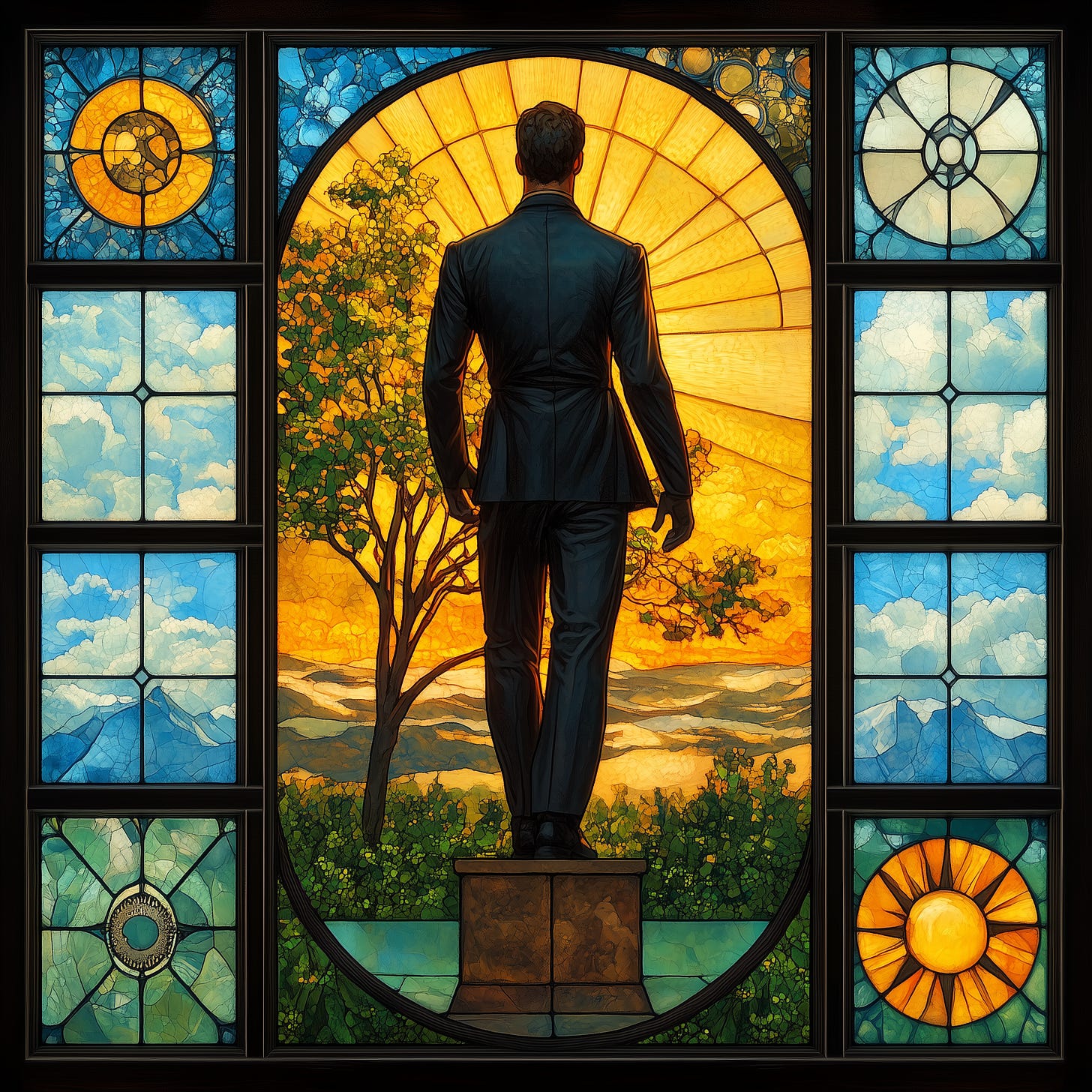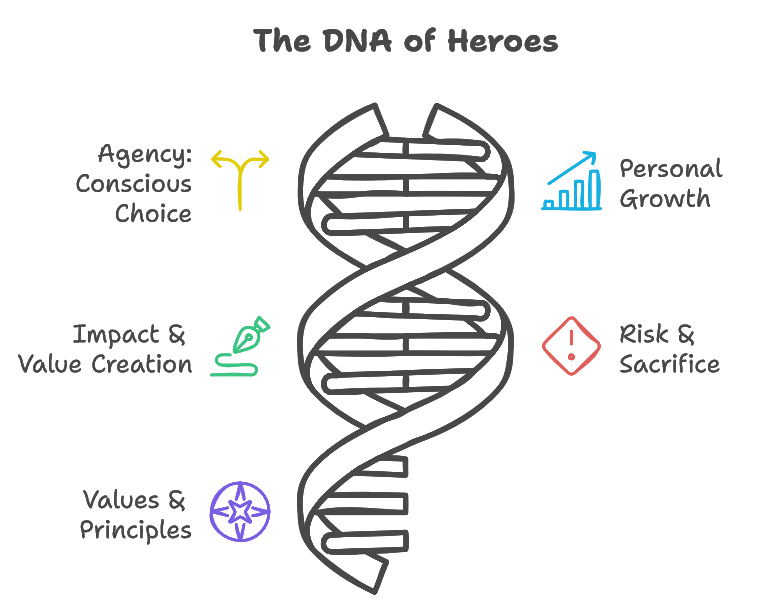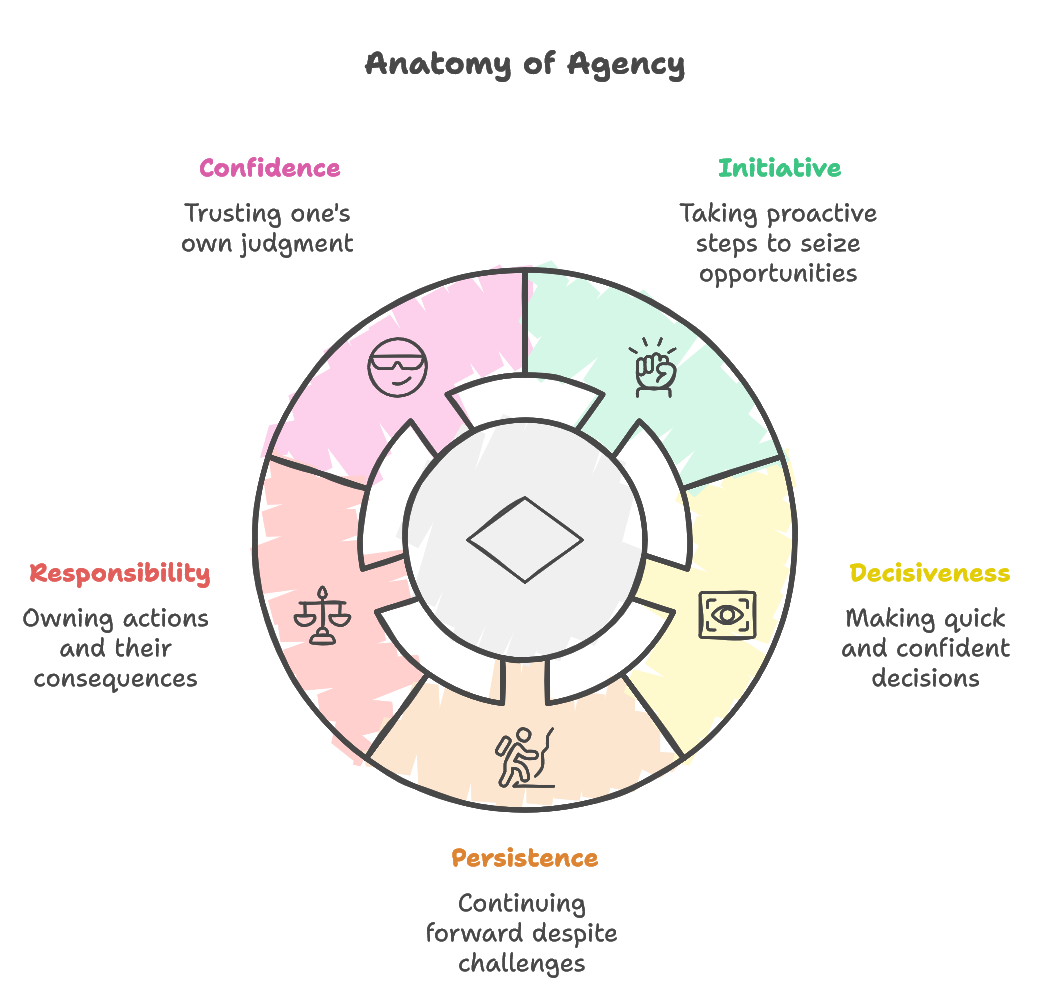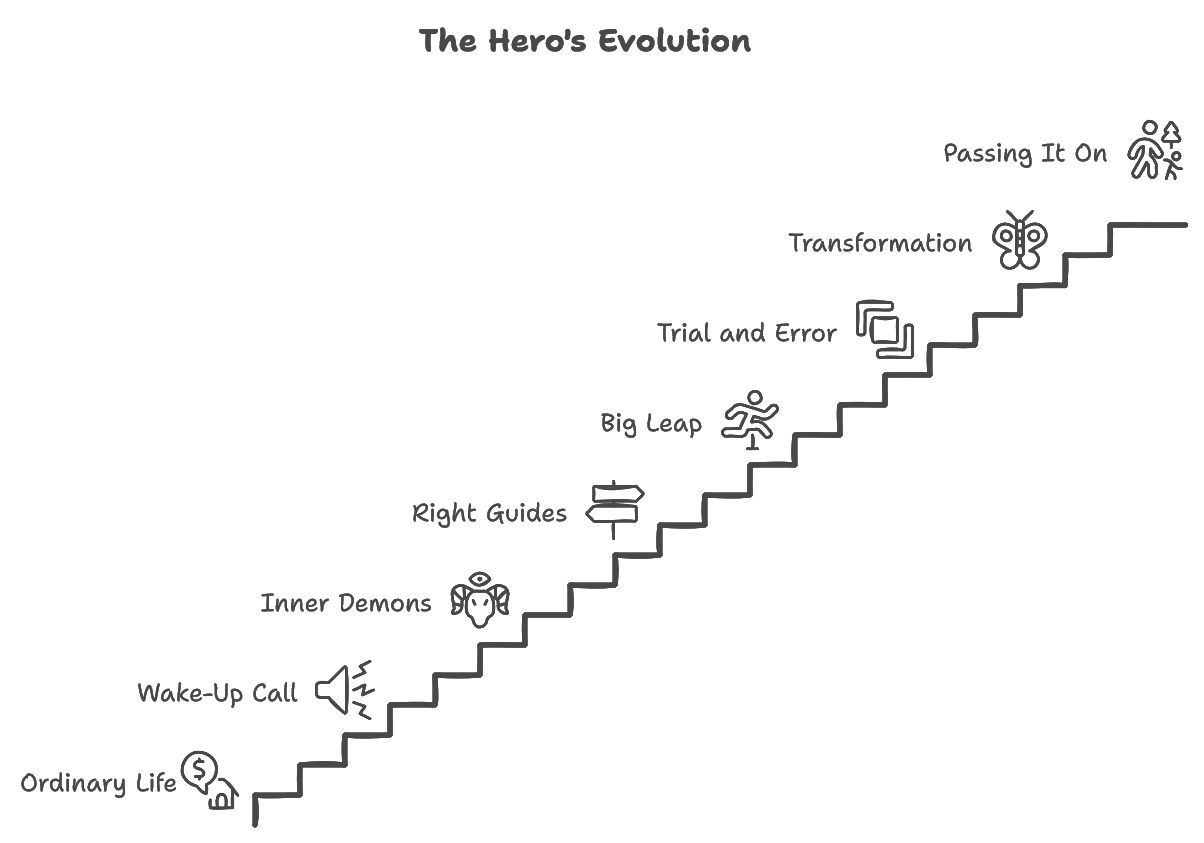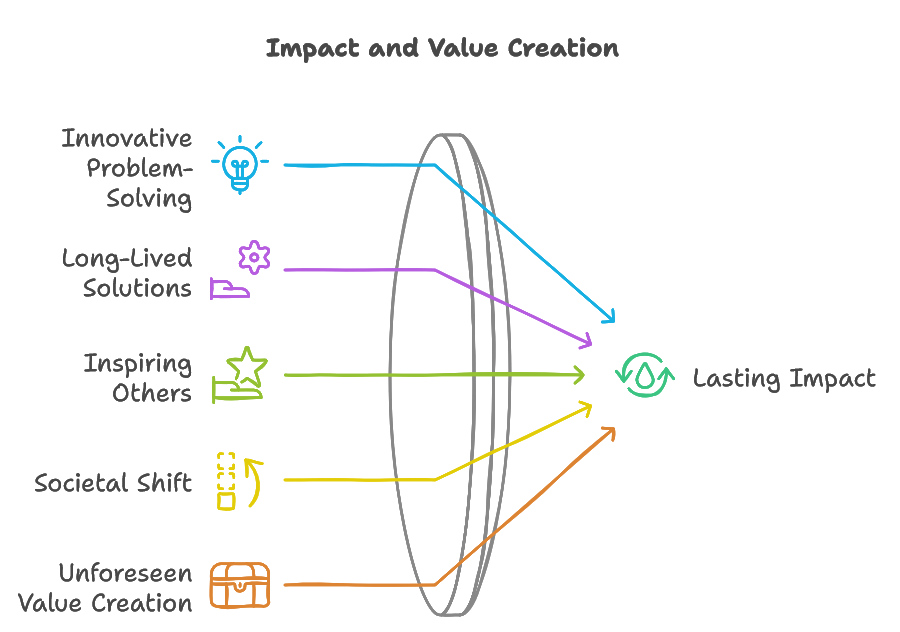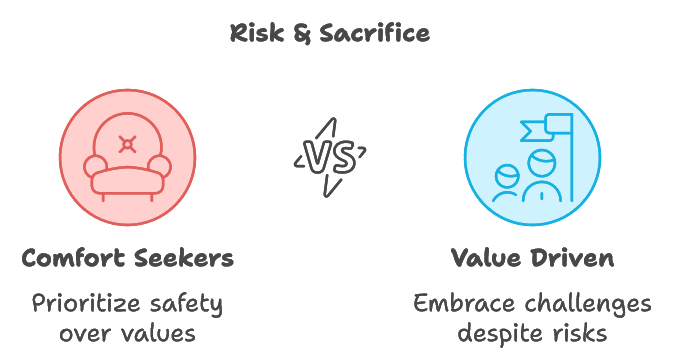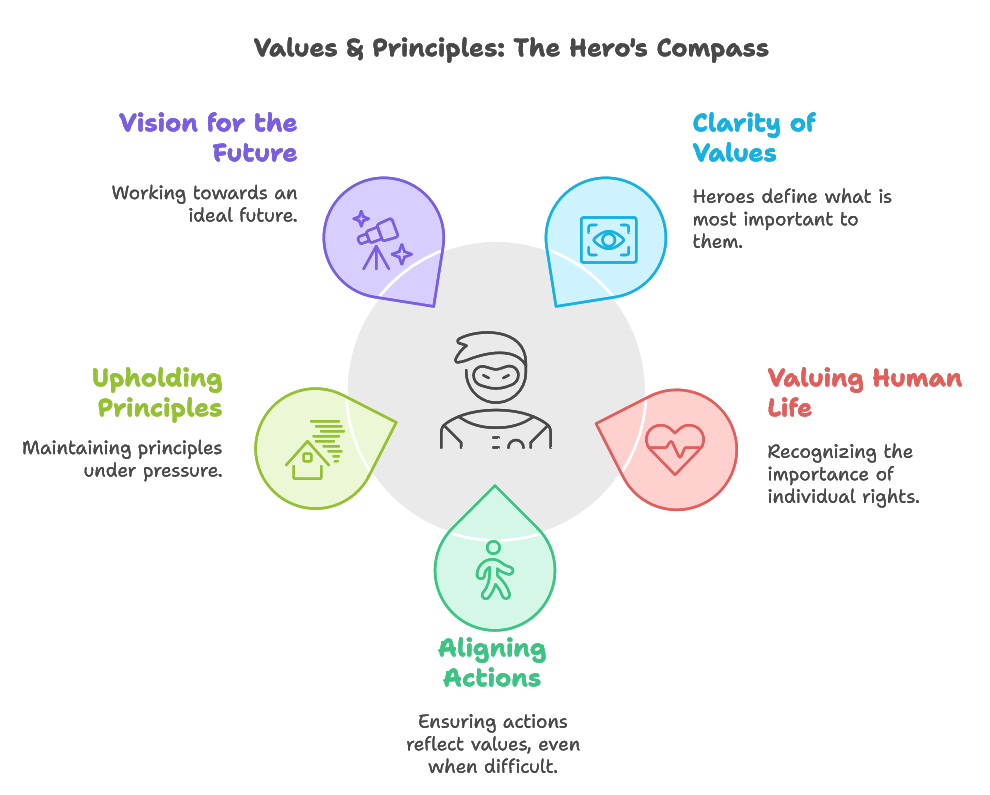The DNA of Heroes
Five Essential Elements of Heroic Character
Our world faces unprecedented challenges, and we need heroes more than ever. And no, I'm not talking about caped crusaders swooping in to save the day (though that might be cool to watch). I'm talking about real heroes – people who see problems and actually do something about them.
What makes someone step up while others step back? What drives one person to risk everything for their values while another plays it safe? These questions aren't just academic – they're vital. Because here's the thing: heroes aren't born heroes. They're made through choices. Lots of them. Daily ones.
I've started digging into the lives of history's greatest game-changers, and something fascinating emerged. Whether I was studying scientists who revolutionized our understanding of the universe or leaders who transformed nations or even everyday people who saw injustice and refused to look away – five core elements kept showing up. Think of them as the DNA of heroic character: Agency, Personal Growth, Impact, Risk & Sacrifice, and Values & Principles.
1. Agency: The Power of Conscious Choice
Let's talk about what really kicks off heroic action: Agency. Heroes don't sit around waiting for someone else to fix things. They don't endlessly complain about problems or hope things magically get better. They act.
Remember Galileo? When the whole scientific establishment (backed by the terrifying power of the Church) said "Hey, maybe keep those wild ideas about the Earth moving around the sun to yourself," he didn't exactly say "sure thing!" He stood his ground. That's agency in action.
Or take Grace Hopper – there she was, surrounded by room-sized computers that could barely add numbers, telling everyone she could make machines understand human language. They said it was impossible. She went ahead and created the first compiler anyway, essentially inventing modern computer programming while she was at it.
And then there's Jane Goodall. Picture this: a 26-year-old with no college degree, showing up in the forests of Gombe with just a notebook and binoculars. No fancy equipment, no team of experts – just determination and keen eyes. Everyone said you couldn't study animals that way. She not only did it, she revolutionized how we understand primates and ourselves.
Here's the thing about agency – it's not about having tons of power or resources. It's about using whatever you've got, right where you are. Heroes:
Jump into challenges while others are still saying "somebody should do something"
Take that first step when everyone else is frozen in hesitation
Keep going even when things get rough (and they always get rough)
Own their choices – no blaming others or making excuses
Trust their judgment even when the crowd's heading the other way
The best part? Agency is like a muscle – the more you use it, the stronger it gets. Every time you choose to act instead of wait, to create instead of complain, you're building your heroic DNA.
2. Personal Growth: The Hero's Evolution
Here's a secret about heroes – they all start somewhere completely ordinary. Sometimes even somewhere pretty rough. What makes them heroes isn't where they begin – it's how they handle what life throws at them.
Take Benjamin Franklin. Before he was flying kites in lightning storms and helping birth a nation, he was just a teenage runaway with a few coins in his pocket and ink-stained hands. Talk about a growth journey! From apprentice printer to founding father, he never stopped learning, growing, and reinventing himself.
Or look at Maya Angelou. She started in pain and trauma, facing challenges that could have silenced her forever. Instead, she transformed that pain into poetry that gave voice to millions. She didn't just grow – she bloomed.
And Frederick Douglass? He taught himself to read when it was literally illegal for him to do so. Went from enslaved man to celebrated author and statesman. Then turned right around and used his hard-won wisdom to light the path for others.
I've studied many hero stories, and the framework Joseph Campbell called the Hero's Journey is a great way to map the stories of the great humans of history. Let's simplify it into steps we can see in real heroes:
Starting in the Ordinary: Every hero was once just a regular person with regular problems. (Even Superman had to learn to walk!)
Getting the Wake-Up Call: Something happens that shakes up their world. Could be a problem, an opportunity, or just that nagging feeling that things need to change.
Wrestling with Inner Demons: Here's where it gets real. Self-doubt shows up. Fear crashes the party. Imposter syndrome kicks in. Sound familiar?
Finding the Right Guides: Nobody does it alone. Heroes actively seek wisdom, whether from mentors, books, experiences, or all of the above.
Taking That Big Leap: There's always that moment when they have to step up to a challenge that feels way too big.
Learning Through Trial and Error: This is where the real growth happens. Every failure is just feedback, every setback a setup for a comeback.
Becoming Who They Need to Be: All those lessons? They don't just add up – they transform. The hero becomes a new version of themselves.
Passing It On: The coolest part? Real heroes turn around and help others grow too. They become the guide they once needed.
3. Impact and Value Creation: Ripples of Change
Here's what's fascinating about heroic impact – it often starts smaller than you'd think. One decision. One invention. One moment of "you know what? This needs to change." But like a pebble tossed in a pond, those choices create ripples that just keep going.
Let me blow your mind for a second: Ada Lovelace wrote the first computer program... in 1843. No, that's not a typo. She wrote instructions for a machine that didn't even exist yet! Imagine sitting there with your quill pen (no laptops in sight), looking at mechanical drawings, and seeing the future of computing. Today, every time you tap your phone or fire up your laptop, you're riding a wave that Ada started with one wild idea.
Or take George Washington Carver. Everyone knows him as "the peanut guy," but that totally misses the point. Here was a man who looked at worn-out soil and desperate farmers and saw possibility. He didn't just develop hundreds of new products – he taught farmers how to work with nature instead of against it. He turned "you can't grow anything in this dirt" into "look what we can create!" His agricultural revolution didn't just change farming; it changed how we think about innovation itself.
And speaking of revolution – how about Tim Berners-Lee? He invented a little thing called the World Wide Web. But here's the kicker: he gave it away. For free. He could have been richer than that social media guy with the hoodies, but he chose global impact over personal profit. Every website you visit, every online connection you make – that's Tim's ripple still moving.
What makes heroic impact so powerful? It's not just what heroes do – it's what they start:
They solve problems in ways that make you say "why didn't anyone think of that before?"
Their solutions keep working even when they're not around
Other people look at their example and think "I could do something like that"
Sometimes they shift how entire societies think about what's possible
The coolest part? They often create value in ways they never even imagined
Here's the thing about impact – you never really know how far your ripples will go. When Jonas Salk refused to patent the polio vaccine, saying "Could you patent the sun?", he wasn't just making a medical decision. He was setting a standard for putting human life above profit that we still talk about today.
Want to know the really exciting part? We're living in an age where one person's positive impact can spread faster and farther than ever before. Your ripple might just be the one the world's been waiting for.
4. Risk & Sacrifice: The Price of Principles
Let's get real for a minute – being heroic isn't exactly comfortable. I'm not talking about cape-chafing discomfort here. I mean the kind of discomfort that comes with putting something valuable on the line because your values demand it.
Take Marie Curie. She didn't just study radioactivity – she watched it slowly poison her. Her research notebooks are still so radioactive today that you need protective gear to read them. But here's the thing: she wasn't being reckless. She knew the risks. She also knew that understanding radiation could revolutionize medicine and physics. So she made her choice, eyes wide open.
Or consider Harriet Tubman. After escaping slavery, she was finally free. Safe. She could have stayed that way. Instead, she went back. Not once. Not twice. Nineteen times. Each trip back into slave territory could have been her last. Each group of people she guided to freedom increased the chance she'd be caught. But she kept going back because, as she put it, "There was one of two things I had a right to: liberty or death. If I could not have one, I would have the other."
Here's what makes heroic risk-taking different from just being reckless:
They're not playing danger tourist – they're facing real risks for real reasons
They put their comfort, safety, or status on the line because something matters more
They choose harder paths knowing exactly how hard those paths will be
They make long-term commitments when others are looking for quick exits
They risk what they have for what they value
5. Values & Principles: The Hero's Compass
Now we're getting to the heart of it all. You want to know what really makes someone heroic? It's not their powers or their platform – it's their principles. Heroes know what they value, and they let those values guide their choices, even when it costs them.
Let me tell you one of my favorite George Washington stories. It's not the cherry tree thing (that's made up anyway). It's what happened after the Revolutionary War. His officers wanted to make him king. Think about that for a second. He'd just led a successful revolution. The army was behind him. He could have been King George of America.
Instead, he didn't just say no – he shut that idea down hard. Why? Because he didn't fight a king across an ocean just to become one himself. His values weren't just ideas he talked about – they were lines he wouldn't cross, no matter what was being offered.
Here's how heroes use their values as a compass:
They get crystal clear about what matters most to them
They understand that human life is valuable and therefore individual rights matter
Their actions match their values, even when it's inconvenient
They hold onto their principles when pressure says "just this once"
They're working toward a vision of what could be, not just what is
The Hero Within (Yes, That Means You)
Here's what pulls all this together: Heroism isn't about being special or superhuman. It's about choosing your values and actually living them. It's about seeing chances to create value and having the guts to take those chances.
You might be thinking "Sure, but these were all extraordinary people." Here's the truth: they became extraordinary by making choices you can make too. Every hero we've talked about started exactly where you are – with a choice to act, to grow, to create value, to take risks for what matters, and to let their values guide them.
Next issue, I’ll be diving into the different types of heroes walking among us. Trust me – you'll start seeing them everywhere. And you might just spot some heroic DNA in yourself too.
Ready to explore your own heroic potential? Subscribe (for free) below to get weekly insights, practical tools, and inspiration for your own hero's journey.

